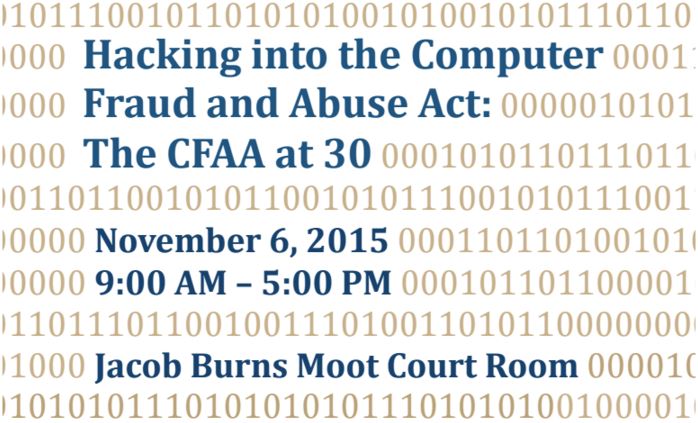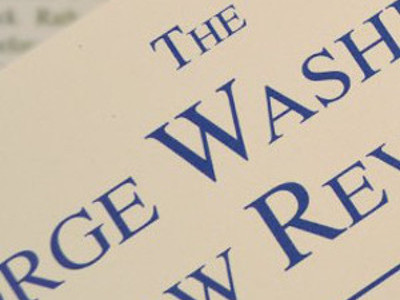Symposium 2015 | Hacking into the CFAA
With our co-host Professor Orin Kerr, The George Washington Law Review is proud to present a thorough discussion of the Computer Fraud & Abuse Act (CFAA) in celebration of its Thirtieth Anniversary. Important questions about the CFAA persist today including its potential overbreadth. Fundamentally, we asked whether a 20th Century statute can resolve the rapidly evolving computer crimes of the 21st Century. Our participants thoughtful answers will be published in The George Washington Law Review’s special symposium issue, Volume 84, Issue 6 (forthcoming, 2016). Thank you to all the panelists for their impressive contributions to this important subject. A special thank you to Professor Orin Kerr for co-hosting this Symposium with The George Washington Law Review. This event could not have occurred without the exemplary leadership of Maxwell Weiss, Senior Projects Editor, and the hard work of Carolyn Harris, Michelle Seares, Vladimir Semendyai, Alexandra Saper.
Keynote and Articles
Panel Summaries
Panel 2: What is Unauthorized Access? Part 2
Panel 3: The Debate Over United States v. Nosal
Panel 4: Beyond Authorization: Proposed Changes to the CFAA
Observations on Hacking into the Computer Fraud and Abuse Act
Panel Video Recordings
Panel 1: What is Unauthorized Access: Part 1
Featuring Matthew Kugler, Aditya Bamzai, and Josh Goldfoot
Panel 2: What is Unauthorized Access: Part 2
Featuring Patricia Bellia, Michael J. Madison, and James Grimmelmann
Panel 3: The Debate Over United States v. Nosal
Featuring Jonathan Mayer and William Hall, Jr.
Panel 4: Beyond Authorization: Proposed Changes to the CFAA
Featuring Orin Kerr, Ric Simmons, Michael Levy, and Paul Ohm
An Introduction to the Computer Fraud and Abuse Act
Featuring Paul Ohm
Schedule of Events
| Time | Event | Room |
| 8:30 AM | Registration & Breakfast | Kelly Lounge |
| 9:15 AM | Opening Remarks: Welcome by Professor Bradford Clark Keynote Address by David Bitkower, Principle Deputy Assistant Attorney General, Criminal Division, U.S. Department of Justice |
Moot Court Room |
| 10:00 AM | PANEL 1: What is Unauthorized Access? Part 1: Matthew Kugler, Josh Goldfoot, Aditya Bamzai | Moot Court Room |
| 10:50 AM | PANEL 2: What is Unauthorized Access? Part 2: Patricia L. Bellia, Michael J. Madison, James Grimmelman | Moot Court Room |
| 12:20 PM | Lunch | Law Learning Center |
| 2:00 PM | PANEL 3: The Debate over United States v. Nosal: William A. Hall & Jonathan Mayer | Moot Court Room |
| 3:05 PM | PANEL 4: Beyond Authorization: Proposed Changes to the CFAA: Orin Kerr, Ric Simmons, Michael Levy, Paul Ohm | Moot Court Room |
| 4:45 PM | Reception | Tasher Great Room |
See the Full Brochure for More Information on Panels, Participants, and Forthcoming Articles.


